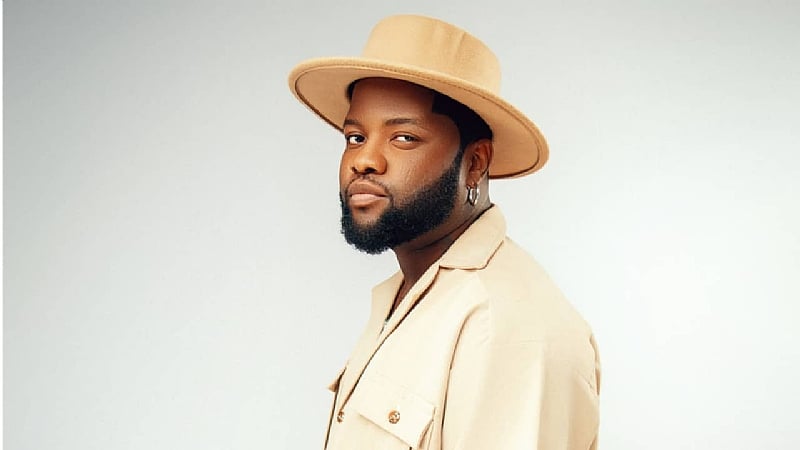Raoul John Njeng-Njeng, better known as Skales, has recently made headlines due to a revealing interview with VJ Adams in which he candidly expressed his feelings about fatherhood and legacy. The popular singer-songwriter, known for hits like “Jogo,” shared a controversial perspective on his personal life, stirring conversations within the music industry and among fans. Skales admitted to feeling regret about not having multiple baby mamas, a sentiment that contrasts sharply with the lifestyle choices of many of his contemporaries in the music scene. This reflection on his life choices has provided an intriguing glimpse into his psyche and the pressures he faces regarding family and lineage.
In his discussion, Skales emphasized the unique circumstances surrounding his family situation, highlighting that he is currently the last surviving member of his bloodline. This reality has intensified his desire to perpetuate his family’s legacy, leading him to contemplate the idea of having children with multiple partners. Skales’ comments suggest a deeper reflection on cultural expectations regarding fatherhood and the passing down of family names, particularly within the Nigerian context, where lineage and heritage are often paramount. His candid remarks may resonate with many who grapple with similar expectations from their families or communities.
The artist’s expression of regret is poignant and reveals a vulnerability that is not often showcased by public figures, especially in the music industry, where machismo and bravado typically dominate. Skales remarked that he is “receiving applications,” a playful yet serious nod to the idea of fathering children with various partners. This statement not only adds a humorous element to the conversation but also underscores the societal norm of valuing male virility and the ability to father numerous children as a measure of success or status. His remarks invite listeners to ponder the complexities of personal decisions and societal pressures that come into play when navigating relationships and family.
This interview has sparked varied reactions from fans and industry peers alike. Some commend Skales for his honesty, viewing it as a breath of fresh air in an industry often shrouded in secrecy and polished images. Others may criticize his desire for multiple baby mamas, calling into question the implications of such choices on family dynamics and children’s welfare. The discourse surrounding Skales’ statements highlights the ongoing conversation about gender roles, parenting, and the responsibilities that come with fame and success. It reflects a broader societal debate regarding the values placed on family structures, particularly in a rapidly changing world.
Moreover, Skales’ comments could elicit a deeper discussion about his artistic expression and the narratives that artists choose to share with their audiences. By revealing his regrets and aspirations, he not only invites fans into his personal life but also challenges them to reflect on their own beliefs and traditions surrounding family. As a public figure, Skales wields the power to influence perspectives and shape dialogues about love, relationships, and responsibilities, making his admission all the more significant. It underscores how artists can serve as catalysts for change, prompting audiences to think critically about their own situations.
Ultimately, Skales’ candid remarks about his desire for multiple baby mamas serve as a fascinating exploration of his internal struggles and the cultural narratives surrounding masculinity and legacy. By sharing his regrets and wishes, he opens a door for discourse on broader themes of family, identity, and responsibility in contemporary society. As fans and followers continue to dissect his comments, it remains clear that Skales is not just a musician but also a figure navigating the complexities of modern life, showcasing the often-unseen vulnerabilities of those in the limelight.


